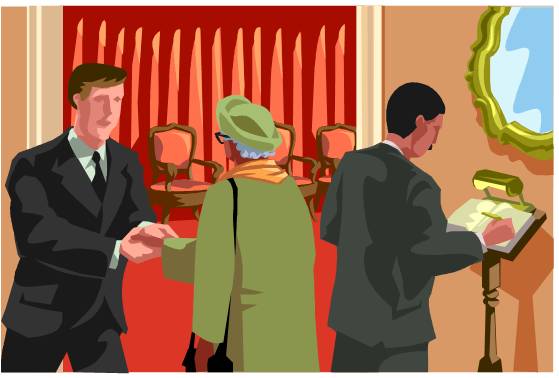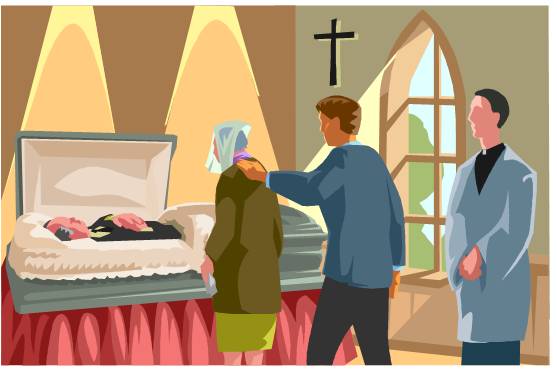Funeral Etiquette
The passing of a loved one or dear friend is quite difficult. Funeral etiquette will help you get through it.
Whether you knew the deceased directly or are friends with a close relative, be it the child, parent, or spouse, the point of your attendance is to lend support during this sad period.
Different cultures and societies will treat the grieving period differently, some even as a grand party. The one thing they all have in common is the remembrance of the deceased as they lived and not as they died, for this is how the person made his mark on his friends and family. Be willingly to lend a listening ear to those who are grieving, for this will allow the person to deal with her inner most emotions and begin the healing phase. Time heals all wounds, as the saying goes, so allow the person to express her loss.

When expressing your condolences, make sure you are sincere but not over effusive. The simple act of expressing your condolences lets those who are grieving know that you genuinely care for the deceased and for them and that you are there for them. Quite frankly, that is the greatest thing you can give to them. Condolences are expressed at any time, but the majority will be expressed during the "viewing" which takes place the evening prior and morning of the burial (and Mass for certain religions), in which you are provided an opportunity to meet with the family at the funeral home (or in some instances, the Church) to express your condolences and pray before the body of the deceased.
The sympathy card or, in some religions, the Mass card, is a way of expressing your condolences to the family. The sympathy card can be of religious or secular tone. In the case of the Mass card, this is a tradition in the Catholic Church, were a Mass, be it Sunday or weekday, is said in honor of the deceased. The importance of the sympathy card is to pick one that fits your situation.
The appropriateness of sympathy gifts again goes to the traditions of the bereaved family and your own traditions. Again, the notion is an expression of condolences.

Funeral flowers have long been a tradition associated with funeral etiquette. Funeral flowers are usually separate displays from the spouse, children and grandchildren of the deceased. In addition, the deceased's employer or a member of the family's employer may also send flowers. Finally, associations that the deceased (or the family) was affiliated with may also send flowers.
With the completion of the funeral process, the family will send out thank you notes to those who attended the viewing and funeral. In some religions, this may include a card of a favorite saint of the deceased and a prayer on the back with a listing of the birth and death dates.
Funerals are a necessary part of the healing process. Funeral etiquette will guide you in helping those affected by the loss of a dear one to begin the healing process. Whether in the formal process or otherwise, the most important thing is for you to be there for your friend or family member so that they can begin the healing process, and focus on the good times the person had brought to his life.
| Share this page: |  |  |
Search Our
Family of Sites
Translate the Page
Find Your Roots






New! Comments
Have your say! Leave me a comment in the box below.